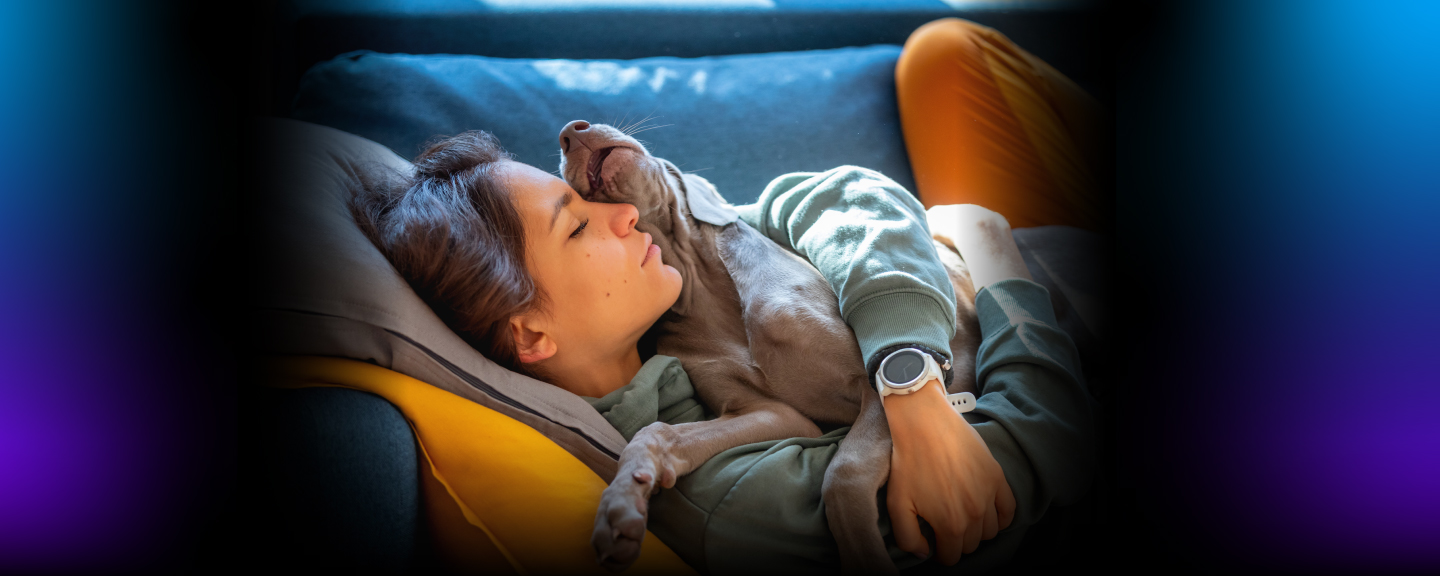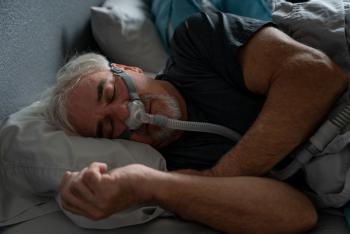Sleep apnea, a common sleep disorder characterized by interruptions in breathing during sleep...
Read More
Sleep is the foundation of your overall health and quality of life. Sleep studies help diagnose sleep disorders so you can get the treatment you need—and get a good night’s rest.
A sleep study is a noninvasive test that records respiratory events and other body metrics while you sleep. An in-lab sleep study can help your doctor diagnose over 100 sleep disorders, including insomnia, narcolepsy, parasomnias and sleep apnea. Your doctor may refer you for a sleep study if they think you have a sleep problem. If you’ve already been diagnosed with a sleep disorder, your doctor may also refer you for a sleep study to determine whether your treatment is working.
At Inspira, we understand that quality sleep is the foundation of a healthier and happier life. Our sleep labs are accredited by the American Academy of Sleep Medicine (AASM) and our sleep specialists are board certified in both sleep and pulmonary medicine. With our team of local sleep physicians and experienced sleep technicians at several accredited sleep lab locations throughout South Jersey, there’s no need to travel outside your community for your sleep study, report, consultation, and treatment plan.
During an in-lab sleep study, our technologist will set you up and be able to monitor your heart rate, airflow, blood oxygen level, eye movement, muscle movement, sleep stages, parasomnias (sleep walking, limb movements, night terrors), and brain activity. At-home sleep testing monitors a limited set of parameters, is exceedingly convenient and easy to perform, and can be very accurate in diagnosing obstructive sleep apnea.
The data collected from your sleep study can reveal a detailed picture of your sleep patterns, including how often you wake up during the night, whether you’re receiving enough oxygen, and if your sleep is disrupted by physical movement. After your sleep study, your doctor will analyze the data collected, evaluate your results and go over them with you when you schedule a follow-up appointment.
The most common type of sleep study is polysomnography, a comprehensive test performed at home or in a sleep lab. Certain sleep disorders, such as central sleep apnea or narcolepsy, may need to be diagnosed with different types of sleep studies. Talk to your doctor for more information about what type of sleep study is best for you.

Sleep studies that take place in a lab are comprehensive tests that monitor your breathing patterns, brain waves, cardiac activity, and physical movement. With more sensors to collect data, sleep studies performed in a sleep lab provide accurate, extensive results that enable doctors to diagnose a broad range of sleep disorders.

At-home polysomnography uses sensors to monitor breathing patterns, including pauses in and absences of breathing. Some home study devices includes an oximeter to measure your oxygen levels, a tube to detect airflow, and a chest band to detect efforts, or lack thereof, to breathe. At-home sleep studies can help diagnose five breathing-related sleep disorders. New home sleep study devices are becoming more available and may require fewer sensors.

A continuous positive airway pressure (CPAP) titration study is a diagnostic test incorporating a mask to determine the ideal rate of airflow needed to treat someone with a breathing-related sleep disorder, including sleep apnea. In some cases, CPAP titration studies can be done on the same night as your polysomnography. If an adequate pressure cannot be determined in the same night, you may need to return for a full night titration and in some cases a Bi-PAP or ASV (Adaptive-Servo Ventilation) titration may be needed.
On the day of your sleep study, follow your normal routine as much as possible. Avoid napping and consuming alcohol before your sleep study, and minimize your caffeine intake. Talk to your doctor about any medications you take, including over-the-counter sleep aids, to determine whether you need to take them on the day of your sleep study.
If you’re participating in a lab-based sleep study, you’ll arrive sometime in the evening with your pajamas and anything else you need to feel comfortable when you sleep. After getting ready for bed in your private room, your sleep technologist will attach noninvasive sensors to your body to monitor you. Once you’re connected, you can make yourself comfortable, relax and watch TV before going to sleep. If your technologist collects enough data early in the night from your polysomnography, they may wake you up for a CPAP titration study. When you wake up in the morning, your sleep technologist will remove the sensors so you can get ready for the day. Showers are also available for your convenience, if needed. Your sleep doctor will analyze the data collected during your study and evaluate your results.
If you’re participating in an at-home sleep study, you’ll receive a kit with sensors and instructions for self-application. Once the sensors are attached, you can go to sleep as you normally would. When you wake up in the morning, remove the sensors and return the equipment as instructed to have it interpreted.
While home sleep studies are helpful in some cases, they limit what your doctor can diagnose and may sometimes result in a false negative. Although at-home sleep studies are comfortable and convenient, a lab sleep study is far more comprehensive.
When preparing for your lab sleep study, pack the items you would take to an overnight hotel stay. Bring comfortable pajamas, toiletries, a change of clothes for the morning and your own pillow if desired. Talk to your doctor about what medications you’ll need to bring with you while participating in your sleep study.
Yes. Bathrooms are available in the sleep lab, and your sleep technologist will explain how to adjust your sleep sensors if you need to get up at night to use the bathroom. If you’re participating in a home-based sleep study, you’ll receive instructions from your doctor on how to proceed.
Yes. Inspira sleep studies are usually complete by 6 a.m., giving you time to wake up and prepare for your day. Our sleep labs have showers available on-site, so you can get ready at the sleep lab and go straight to work.

Sleep apnea, a common sleep disorder characterized by interruptions in breathing during sleep...
Read More
Mouth taping is a practice that promotes nasal breathing during sleep, which may improve sleep...
Read More
Waking up in the middle of the night can be frustrating, but picking up your phone or trying to...
Read More